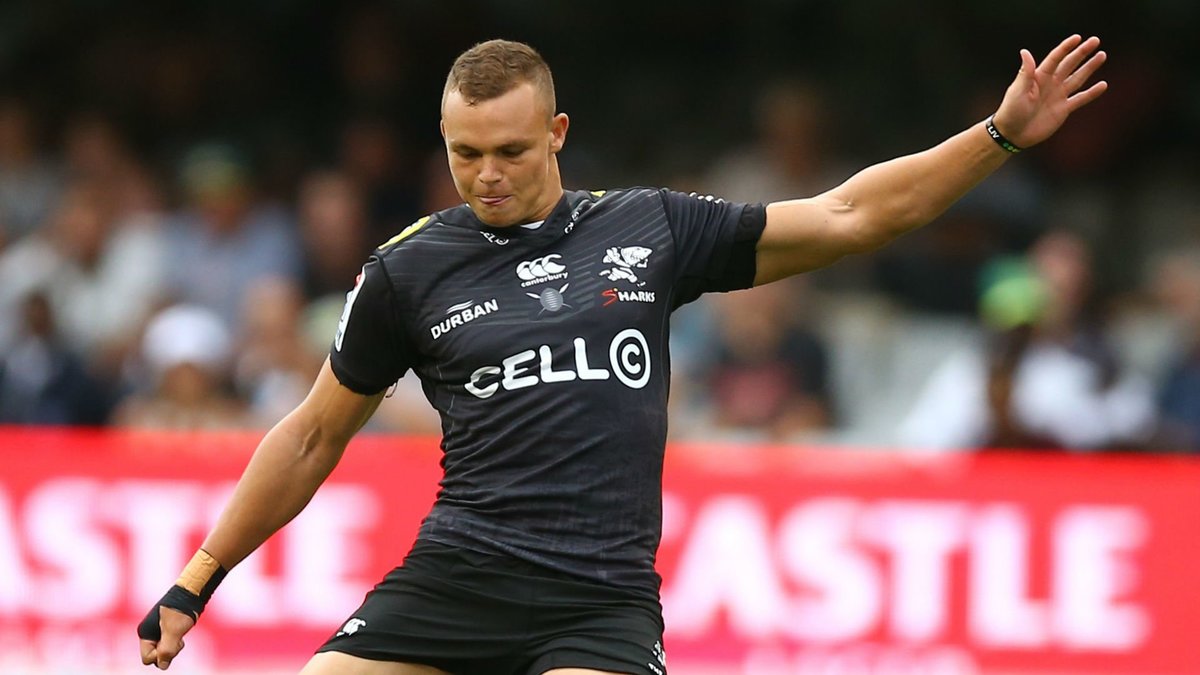With flyhalf Robert du Preez laying low after his recent stint in England, Curwin Bosch has been given a rare opportunity to show his worth in the No.10 jersey for the Sharks.
The 21-year-old started at flyhalf for the Sharks against the Lions during the pre-season double-header in Cape Town and he has been given another opportunity in the same position for the warm-up against the Bulls in Ballito.
It means Bosch will almost certainly start against the Sunwolves in the Sharks’ Super Rugby opener in Singapore.
It will be an opportunity that Bosch will relish as he will probably be sent back to fullback for future matches – to make way for No.1 choice Du Preez.
Flyhalf is Bosch’s preferred position, but he has been used sparingly in that role over the last 12 months.
After being touted as a future star in that position for South Africa a few years ago, Bosch’s name does not even register on the Richter scale as a flyhalf candidate for the Springboks at the World Cup.
After joining the Sharks ahead of the 2016 season, Bosch showed his potential on a few occasions in the No.10 jersey, despite the naivety that comes with all young sportsmen.
He made his Bok debut at the age of 20 off the bench under Allister Coetzee, in the 37-15 win over Argentina in Port Elizabeth 2017. However, Bosch still had a lot to learn and the weaknesses in his game – like defence and game management – were apparent.
His only other Test appearance was against Wales in Washington DC in 2018. He was a starter at fullback in that match.
Bosch was seen as a successor to the now-retired Patrick Lambie and when the latter announced that he was leaving the Sharks for Racing 92 in September 2017 – it looked like things were all falling in place for Bosch, to make the No.10 jersey his own.
However, inconsistent performances plagued the young pivot and then the Sharks decided to sign Du Preez from the Stormers (Western Province) ahead of the 2018 Super Rugby season.
With Du Preez the preferred choice at No.10, Bosch spent most of his time at fullback in 2018.
The lack of game time at flyhalf meant Bosch has fallen down the pecking order when it comes to flyhalves vying for the Springboks’ No.10 jersey.
As it stands Handre Pollard, Elton Jantjies, Damian Willemse and Du Preez are all ahead of Bosch.
For a place at fullback, Bosch is competing with the likes of Willie le Roux, Warrick Gelant and Willemse, so his chances of making Rassie Erasmus’ World Cup squad later this year appears slim.
Bosch is still young, and he has a lot of rugby ahead of him, but he is quickly becoming the forgotten flyhalf of South African rugby.
By Warren Fortune @rugby365
Rugby World Cup City Guides – Oita:







































































